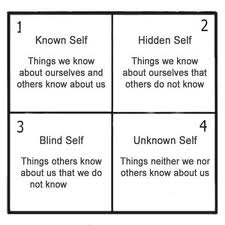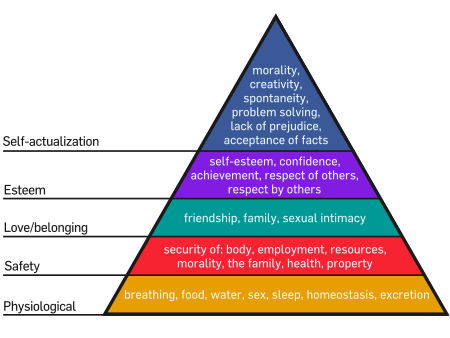Self-Awareness & Health
By LeAnna J. Carey | Oct 31, 2011

Every human has four endowments- self awareness, conscience, independent will and creative imagination. These give us the ultimate human freedom... The power to choose, to respond, to change, Stephen Covey
Do your day-to-day decisions match what you want for your life? To achieve your best personal health, begin by exploring what blind spots you may have about lifestyle habits that don’t enrich to your health, and ask yourself “what can I do differently?”
Most of us have friends or family where we are accountable for our actions, and lifestyle decisions can be included in those discussions, as well. I began to think about Charles Handy's concept of the Johari window in relationship to self-care health and lifestyle decisions. His four room concept is about self-awareness. Room 1 is the part of ourselves that we see and others see. Room 3 contains the aspects that others see but we are not aware of. Room 4 is the most mysterious room in that the unconscious or subconscious part of us is seen by neither ourselves nor others. Room 2 is our private space, which we know but keep from others. In other words, are you open to looking at yourself from a different perspective? This foundational action is key to embracing the lifestyle habits that benefit your health and that match the life you want to create. Opening up oneself and acknowledging that we are our own unique gatekeeper when it comes to our lifestyle choices is empowering.
The next step toward being self aware and empowered is understanding the basics of managing your energy. The three pillars of what keeps our body rhythms in sync and optimizes our energy are:
- Sleep
- Timing
- Light
What ties everything together is making the right decisions about how we get our day-to-day lifestyle habits in sync with our need for energy and rest. For instance, make a conscious decision to turn off the electronics (light) a couple of hours before bedtime (timing); you'll enhance optimal renewal (sleep) → you are more likely to consume the right amount of calories → more likely to have energy → more likely to have a productive work day and home life → more likely to be empowered and self-aware. Getting our body rhythms in sync increases our self-awareness and opens up creative potential in our lives. What is most important is embracing positive moment-to-moment decisions that enrich your health and your life. As Steven Covey has described, we have the power to choose, respond and change.
